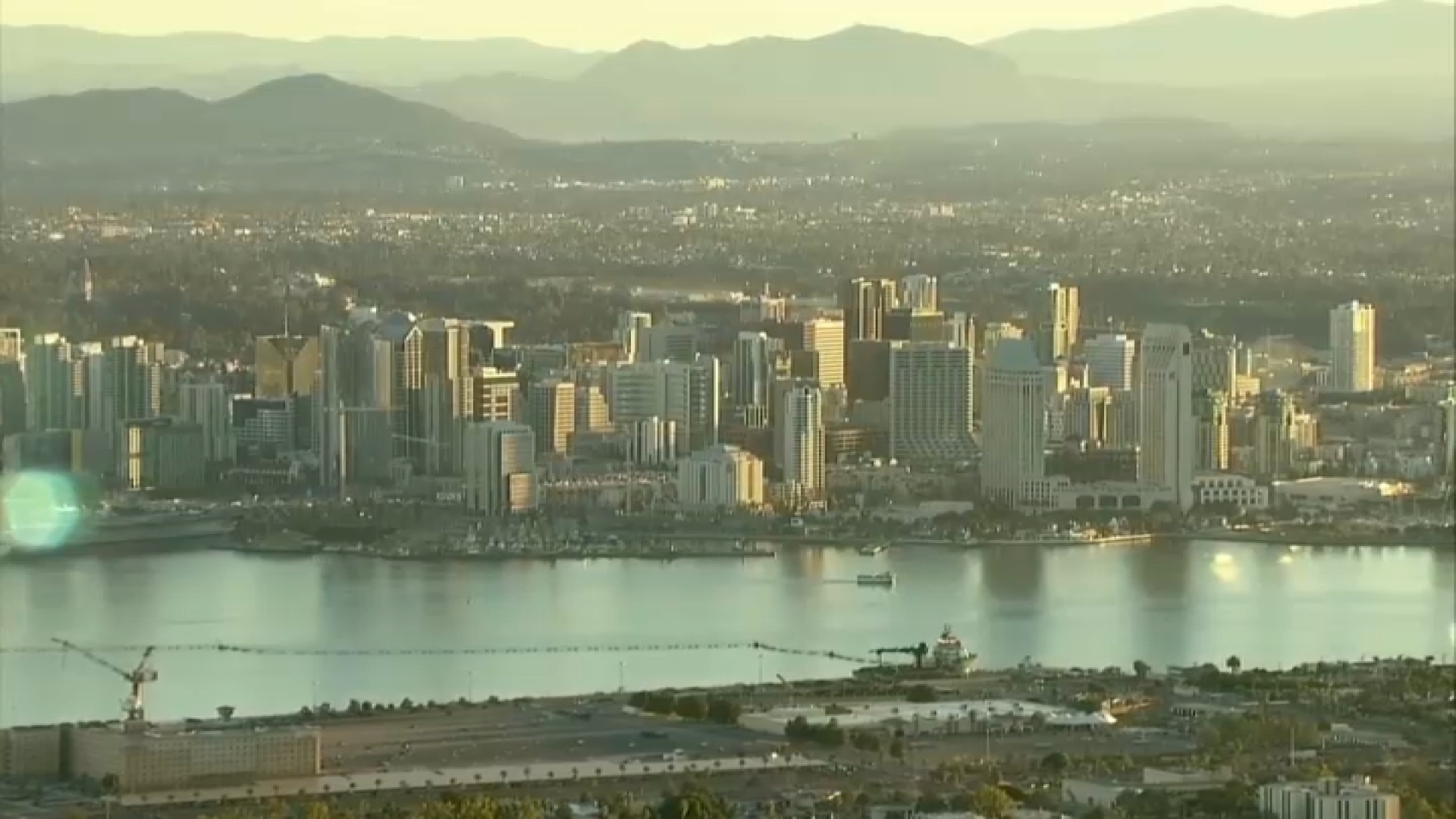Now that San Diego's mayor and the owner of the Chargers have met face-to-face, what are the odds they'll see eye-to-eye on the what the city's stadium advisers come up with?
Conventional wisdom says the Chargers have the upper hand in bargaining because the city dares not lose them. But there's also risk for the team in leaving town.
It's one thing to know each other’s breaking point, and the city can't afford not to know its own.
Veteran political strategist Jon Elliott offers this view of the stadium standoff: “What we've got is they (the Chargers) think they're in charge. I don't think they're in charge. They're a tenant, and we're the landlord – we, the citizens of San Diego.
“And the problem with the politicians here is, nobody wants to be the guy who says 'adios' to the Chargers."
Mayor Faulconer, just after his private meeting with the Chargers’ Dean Spanos, was cast as a villain Sunday by Gulls fans who booed him at the city’s welcoming rally for the minor-league hockey club.
His comeback?
"I don't think we can hear you,” Faulconer shouted, on-mic, at the turnout of several thousand. “Are we gonna keep the Chargers here in San Diego?"
"Yeeaahhh!" came a response that more or less drowned out the boos and catcalls.
"That's what I'm talkin' about!" the mayor tossed back defiantly.
The Chargers are talking about a fallback stadium plan with the Oakland Raiders in Carson that would pick just private pockets and not soak taxpayers who can't afford -- or don't care about -- "the game-day experience.”
But it would be a while before the teams could take up residence there if they leave their current venues.
"Let them be called the Rose Bowl Chargers,” said Elliott. “Let them be the LA Coliseum Chargers -- although they probably won't draw as well as USC does there. And they'll have to work out scheduling conflicts."
Local
There's no shortage of economic issues dividing the two sides.
Complicating that during last week’s dustup over the parallel track in Carson was a clash of egos over "power plays" and feelings of betrayal.
The mayor's stadium advisers got a hurry-up prod from the Chargers, which the team's critics think was a blatantly rude, crude move.
"(The Chargers) put a stab in our mayor's back that said you were going to call the shots -- and you had already done it,” Elliott told NBC 7. “And he was the one mayor that consistently said, 'I'll get this done,' and he was going to get it done. He was going to run roughshod."
Spanos isn't as flush as most of his NFL competitors, but he's shrewdly played a cash-strapped city.
"These people own these football teams because they're excellent business people,” said George Belch, sports marketing professor at San Diego State University’s school of business administration.
“They haven't made the money to own these teams by not being good business people,” Belch said in an interview Monday.
But given the city's fragile finances, will San Diego voters see saving pro football as more of a luxury than a basic civic need?
“We're not Pittsburgh, we're not Green Bay, not Denver where we're just head over heels in love with our team," said Belch. "I do think there's a great fan base here, but we're not willing to fund this at any cost because I think we just know we have too many issues here that we're dealing with as a city."
Belch’s level of optimism for a win-win resolution is relatively low: "Every time you look at this, it's great theater. Fascinating to watch. But you really are left scratching your head and wondering how it could really by resolved -- unless someone makes a major concession."
Failing that, it may take a "White Knight" or two with a ton of gold to step in.
Chargers special counsel Mark Fabiani has said the team would consider new part owner/investors if it made sense and would help expedite a deal.
On Tuesday the mayor's stadium advisers will hear from County Supervisor Ron Roberts and SDSU officials.
In a statement to NBC 7 Monday, chairman Adam Day said their goal is to come up with an "economic engine" that has "something for everyone."
Day shared a sense of optimism about the task ahead: “We said all along we would beat the fall deadline (for a stadium proposal), so we felt comfortable announcing the May deadline. All of us want the Chargers to remain in San Diego, and that’s our focus – finding a solution that works for everyone. We’re going to put the best plan forward.”



